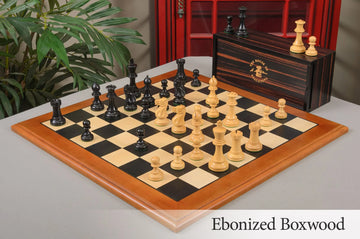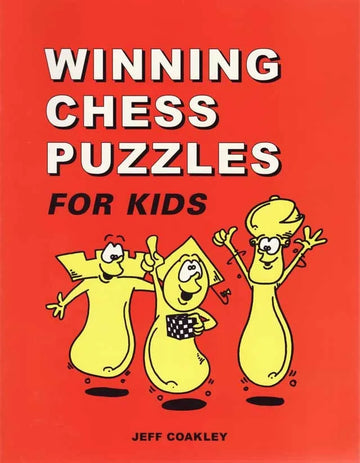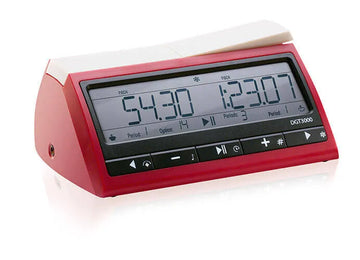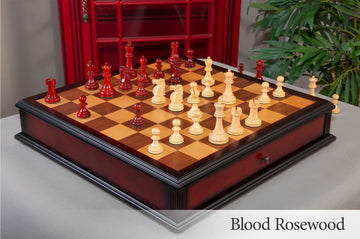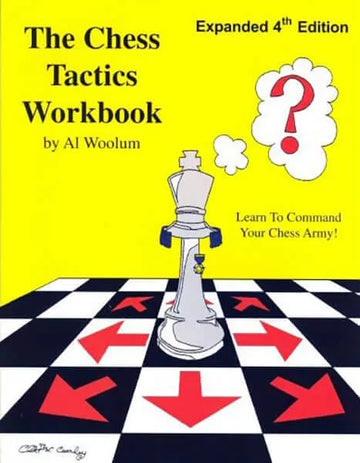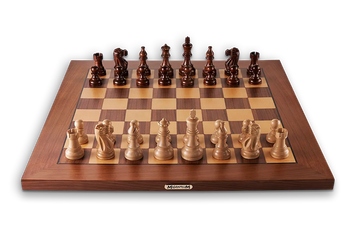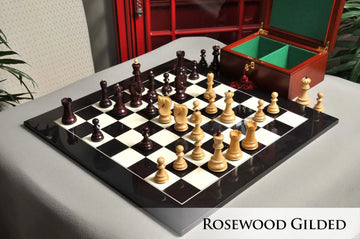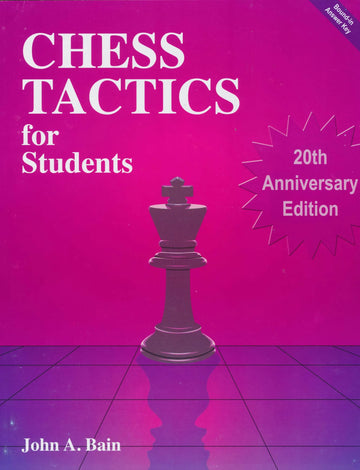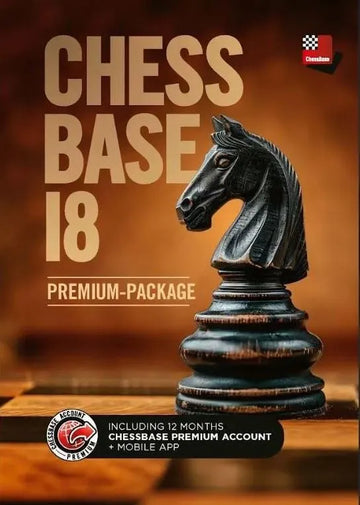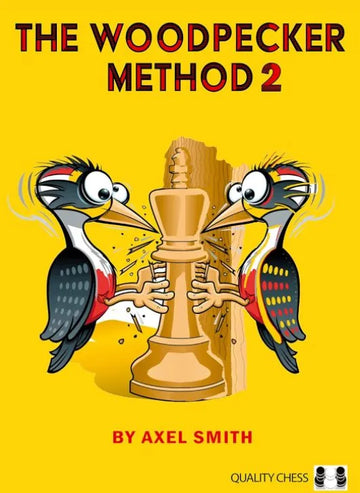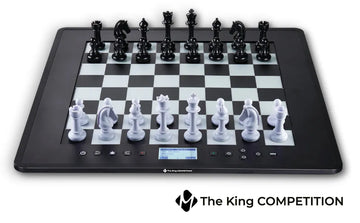Tips to Find the Right Chess Books for You
Today, reading chess books gives you an edge that many other players won’t have. However, the choice available can make it difficult to know where to start.
To find a good chess book, it helps to understand where you are in your chess development, the kind of book you’re interested in, and how chess study works. Let’s look over these key ideas and discover tips for picking out chess books.

Know Your Level
Many chess books will specify what level of player they are intended for. Today, many even offer appropriate rating ranges. Other books have more open-ended descriptions. Nevertheless, when choosing a chess book, an accurate assessment of your rating, and your chess ambitions, is a good place to start.
Many players are tempted to skip steps and go straight for the more challenging books. They may be tempted to follow the logic: "If grandmasters do it, it must be the best." The truth is that grandmasters invest a massive amount of time in studying chess and have an incredibly strong theoretical grounding. Whether it’s selecting chess openings or books, grandmasters' favorites are not always the best choice.
Instead, choose a book that will challenge you without being so dense or difficult that you will become frustrated. Chess is a complex game and even books for beginners are full of useful insights.
Let’s look briefly at what defines a beginner, intermediate, and advanced player.
Beginners
Beginner chess players are relatively new to the game. They may know a few openings and principles of chess, and understand terms like tactics and gambit. A beginner is unlikely to be able to calculate deeply, thoroughly understand opening or endgame theory, or understand how moves can create long-term positional advantages.
It is difficult to come up with a clear rating range for beginners, as there is a lot of variation on different platforms and in different organizations. On chess.com, you might say that players rated below 1200 are beginners.
The clear definition of a beginner is not too important, but having a general sense of your level makes it easier to select a chess book. As a beginner, your aim should be to find books that give you a solid grounding in the fundamentals. For example, the types of tactics, checkmating patterns, and the basics of opening theory.
Bobby Fischer Teaches Chess is a classic beginner chess book, from arguably the greatest player of all time.

Intermediates
Intermediate players may have a rating of between 1200 and 2000. At this level, you will likely have a strong grasp of several openings, understand the fundamental elements of chess, and the beginnings of a unique style of play. There's a good chance there are still some major weak spots in your game; endgames are a common one.
At this level, it is a good idea to try and study areas where you struggle. If you find it difficult to get an advantage with the black pieces or you never know how to progress in the middle game, some books address these issues in-depth.
How to Reassess Your Chess by Jeremy Silman is a great chess book for intermediates, teaching how to convert small imbalances into major advantages.
Advanced
If you are an advanced player, you likely have a better sense of your level. Your rating range will be high (above 2000), and you may have competed in over-the-board tournaments. You will be aware of how chess ratings work and the differences between official and online ratings.
Of course, everyone’s chess journey is different. You could be a very talented player who is advancing quickly to a high rating range. This is why it is important to not only consider your rating but also how much you know about chess. Even if you are naturally a very good player, you still need to study the basics and build your knowledge from there.
That said, as an advanced player you will likely be trying to find books to expand your theoretical knowledge, analyze games, develop your playing style, and discover new perspectives on the game.
Endgame Virtuoso Magnus Carlsen by Tibor Karolyi offers insightful analyses of Magnus Carlsen's endgames. While clearly written, this book is best for advanced chess players.
Take Time for Research
To avoid wasting time with books you don’t like, spend some time researching the book. By reading summaries, extracts, and reviews, you can quickly tell whether a chess book is for you.
Ask yourself questions like:
Am I looking for an instruction book? Is my main goal to improve? Do I want brief descriptions of many openings or an in-depth study of a few? What are the weak spots in my game? Am I comfortable reading games solely through notation?
These simple yes or no questions and quick research about books will enable you to quickly narrow down your list.
Where to Get Chess Book Recommendations
The increasingly popular world of chess includes innumerable blogs, YouTube channels, podcasts, and news outlets. Many of these will offer recommendations for chess books.
One great thing about chess is many coaches and players publish books. Contemporary authors will also often go on podcasts or news outlets to promote their books. By listening or watching some of these you can get a very good sense of the approach a book takes, the author’s ability to explain things, and who the book is intended for.
Understand Chess Book Categories
It helps to understand the main categories of chess books to get a sense of what might suit you. The following are the most common types, though of course each is unique and many could fall into multiple categories.
Instructional
Probably the most popular chess books are those that set out to help you improve. Instructional or chess teaching books blend theory and practice to teach you how to win more games of chess. They often include explanations of principles in chess, puzzles, game analyses, and training ideas.
Simple Chess by Michael Stean is a great instructional chess book and explains the fundamentals of chess strategy.

Autobiographical
Many grandmasters write about their experiences of playing chess at a professional level. These works are a fascinating blend of history, self-reflection, and chess insights. They are a great way to learn more about the game and the world of chess. Autobiographies from grandmasters that delve into games are often better for intermediate and advanced players who can read chess notation.
My 60 Memorable Games by Bobby Fischer and The Life and Games of Mikhail Tal are two classic examples.
Manuals
Chess manuals are comprehensive books about chess that cover a lot of material. Openings manuals for example will include descriptions, explanations, and examples from hundreds of openings. Other manuals may cover the elements of chess, positional principles, or chess endgame scenarios.
These tend to be long books and setting out to read them from cover to cover may be foolhardy, especially for a beginner. That said, they are great reference books for learning multiple openings and looking up specific chess concepts. For example, Nick de Firmian's Modern Chess Openings covers many different types of openings, with categories like Double King Pawn Openings and Flank Openings.
Chess Books That Work For You
The important thing to remember is that chess books are designed to help you learn. They should be interesting, engaging, and enjoyable.
As a casual or even a club player, forcing yourself to struggle through an entire chess manual is not likely to be that helpful. Instead, look for books that focus on concepts you are interested in and explain them clearly in a way that makes sense to you.
I've recommended a few examples so far, but for more recommendations of chess books and content take a look at these articles:

